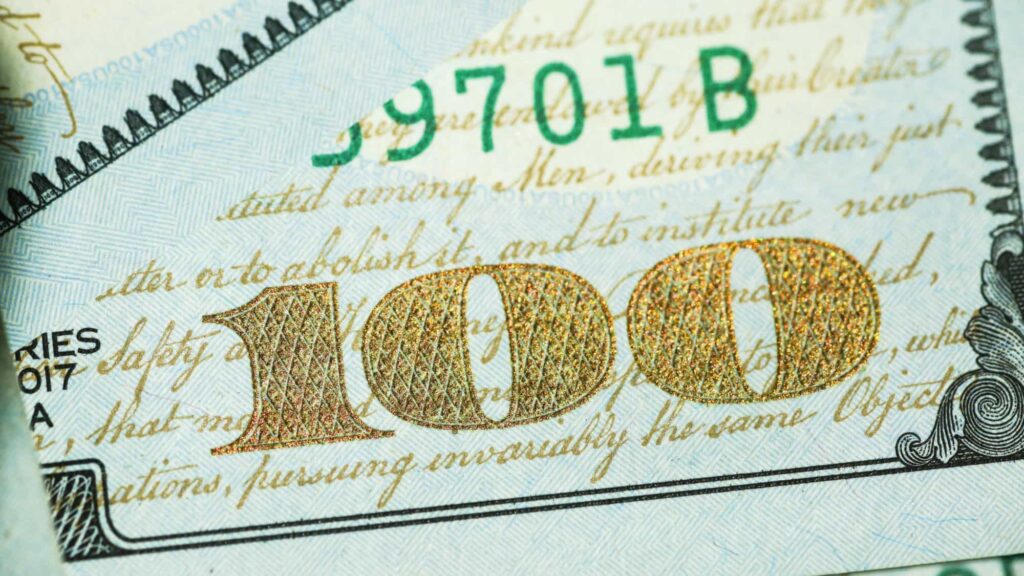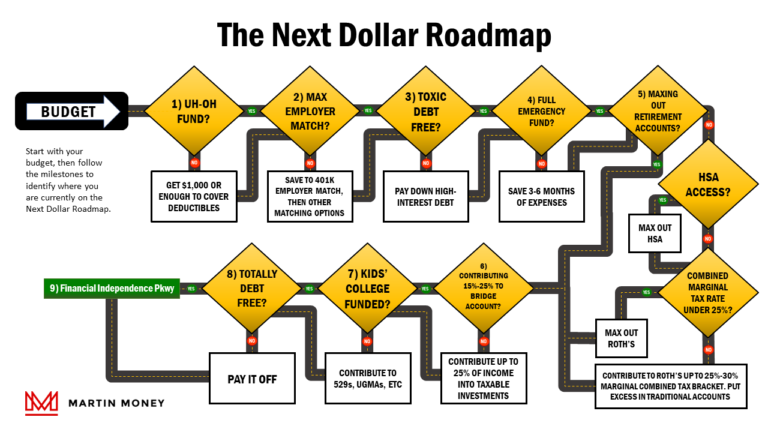How long will it take me to become a millionaire if I save $100/month?
Assuming you achieve an annual rate of return of 10.67%, it would take you 42 years and 4 months to accumulate $1M in wealth.
When I was in college, I had a business professor who challenged us to save at least $100 each month after we graduated.
One hundred dollars is not a ton of money, but I think his primary motive was to challenge us to take a longer view of finance since so many of our classes challenged us to focus on business finance in annual chunks.
Personal finance is a bit different.
We have our whole lives to build wealth, but he also knew if we failed to start on that and use the time we had available to us, we may not accumulate much.
I think he also used a very obtainable goal, $100/month in this case because he wanted us to see that it was realistically achievable.
We didn’t need to live a miserly existence in order to save something. Even a little bit saved could turn into a significant amount of money over time.
Finally, I think he knew $100 was just a starting point. As our careers progressed, it would get easier and easier to set aside more and more income for long-term saving.
In any event, my professor showed us that we could accumulate $1M in 42 years and 4 months if we saved $100/month and received a rate of return of 10.67%.
Year | End of Year Value |
1 | $1,271.67 |
2 | $2,685.86 |
3 | $4,258.54 |
4 | $6,007.49 |
5 | $7,952.45 |
6 | $10,115.40 |
7 | $12,520.76 |
8 | $15,195.70 |
9 | $18,170.44 |
10 | $21,478.58 |
11 | $25,157.47 |
12 | $29,248.69 |
13 | $33,798.42 |
14 | $38,858.08 |
15 | $44,484.80 |
16 | $50,742.14 |
17 | $57,700.78 |
18 | $65,439.31 |
19 | $74,045.14 |
20 | $83,615.49 |
21 | $94,258.43 |
22 | $106,094.19 |
23 | $119,256.46 |
24 | $133,893.90 |
25 | $150,171.84 |
26 | $168,274.15 |
27 | $188,405.29 |
28 | $210,792.64 |
29 | $235,689.08 |
30 | $263,375.80 |
31 | $294,165.54 |
32 | $328,406.07 |
33 | $366,484.14 |
34 | $408,829.83 |
35 | $455,921.46 |
36 | $508,290.92 |
37 | $566,529.73 |
38 | $631,295.72 |
39 | $703,320.40 |
40 | $783,417.31 |
41 | $872,491.16 |
42 | $971,548.03 |
42Y 4M | $1,006,975.34 |
Why do we assume 10.67%?
Well, the historical average annual return of the S&P500 when we started this website was 10.67%, so that’s what I chose to use and have decided to stick with it. Feel free to adjust as you see fit.
Summarizing all of this, for a 22-year-old I was presented with a relatively clear and obtainable path to one million dollars by the time I was 64.
I have to admit, my professor’s argument was hard to dispute. Everything he presented was reasonable enough to expect and $100/month was a sum I could realistically set aside.
Modernizing Things a Bit
I graduated from the University of Alabama in 2003 and neither $100 nor $1,000,000 are what they once were.
You’d need $161.30 today to equal $100 then.
I’m also going to assume that most folks reading this could easily save even more than $100/month without trying very hard to get there.
So, what happens if we increase the amount saved a bit? See below.
Amount Saved Monthly | Time to $1,000,000 |
$100.00 | 42 years, 4 months |
$200.00 | 35 years, 11 months |
$300.00 | 32 years, 2 months |
$400.00 | 29 years, 7 months |
$500.00 | 27 years, 7 months |
$600.00 | 25 years, 11 months |
$700.00 | 24 years, 7 months |
$800.00 | 23 years, 5 months |
$900.00 | 22 years, 5 months |
$1,000.00 | 21 years, 6 months |
$1,250.00 | 19 years, 8 months |
$1,500.00 | 18 years, 2 months |
$1,750.00 | 17 years, 0 months |
$2,000.00 | 15 years, 11 months |
$2,500.00 | 14 years, 4 months |
$3,000.00 | 12 years, 11 months |
$3,500.00 | 11 years, 11 months |
$4,000.00 | 11 years, 0 months |
$4,500.00 | 10 years, 3 months |
$5,000.00 | 9 years, 7 months |
$7,500.00 | 7 years, 4 months |
$10,000.00 | 6 years, 0 months |
I want to point out a couple of quirky things about compounding interest here.
First, you might initially assume that doubling the amount saved will reduce the time to one million dollars by half, but that’s not the case.
That’s because the balance needs time to harvest more significant gains toward the end of the investment period.
It’s like momentum for money.
For example, when saving $100 per month you’ll only have a balance of $96,144.79 after 21 years and 2 months.
That’s 1/10th of the money after ½ the time. Compounding is truly an exercise of patience.
However, if you measure earnings by the same time period, then $200 would be worth $2,000,000 after 42 years, and 4 months. So, if time is equal, the earnings do in fact grow in proportion to the amount of the contribution.
How much would $1,000 be worth after 42 years, and 4 months? A cool $10,000,000.
And $10,000/month after 42 years, and 4 months? $100,000,000!
What does this mean for Average J?
So, what about Average J? How much can he or she really save a month?
Well, our recommendation is for people to save anywhere from 15%-25% of their annual income for retirement.
If you’re in your twenties, 15% should be sufficient.
For 30-somethings we recommend pushing up to 20%, and finally, for 40+ we propose 25%. This is all covered in Milestone 5 of the Next Dollar Roadmap.
Using 2021 data (it’s the newest I could find), the median household income for those in the 25 to 34-year-old bracket is $74,862. Fifteen percent of that would be $11,229.30 annually or $935.78 monthly.
We don’t have the time for that listed in our chart above, but if Average J saved $935.78 monthly, she would have $1MM in 22 years, 1 month.
35–44-year-olds enjoy a median income of $90,312. Twenty percent of that is $1,505.20 per month. Time to one million bucks would be 18 years, and 2 months.
45–54-year-olds have a median income of $97,089. Twenty-five percent would be $2,022.69 per month which would take 15 years and 10 months to reach $1MM.
So, if you want to retire early, start saving early or start saving more.
Why One Million?
It’s convenient.
Really, that’s why I used it as a benchmark.
Many will critically point out that $1,000,000 doesn’t go as far as it once did, and I have to confess my agreement.
Furthermore, most of us aren’t retiring in 2023 so who knows how much more we’ll actually need?
I’ll point out two quick thoughts to address this concern.
First, there’s no way to get to two million dollars without going through one million first. You might as well begin aiming for something in that neighborhood to get you moving in the right direction.
Secondly, the uncertainty of inflation should serve as a motivator for you to get going now.
This post and others all highlight the plain and simple truth that time is a critical component in wealth building through compounding interest.
The best time to start saving is now. Even if you can only save a modest amount, it’s better than nothing at all.
Finally, for help calculating how much you need to save for the retirement you’re aiming for, see this post. In it, we share some methods for estimating how much you’ll need to save to provide income for yourself after you leave the workforce.
Conclusion
In summary, my message is the same as my professor’s. Even modest savings can yield mighty returns if they’re given time to grow.
Do not accept the lie that you cannot save for your future.
FAQs
When does the average millionaire reach $1MM?
The average millionaire first reached millionaire status when they were 49 years old.
How old is the average millionaire?
The average millionaire is 57 years old.
How many millionaires are there?
In October of 2022, there were just under 22 million millionaires in the United States. That’s almost 6% of all American households and 40% of the world’s millionaires.
What is considered wealthy anyway?
This is such a subjective question, but Charles Schwab attempted to answer it last year in a survey they conducted. The results showed that the average American believes $2.2MM is the amount you need to be considered “wealthy”.







